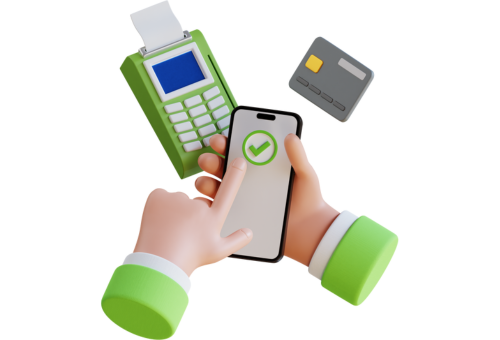Watch video summary
Schedule a Free Consultation Call Today
Discover how we can help you overcome, the latest payment challenges.
Introduction
As a business, having the right payment methods available for customers is essential for ensuring a smooth and successful transaction. With the rise of digital payment solutions, businesses now have more options than ever when it comes to accepting payments from customers. In this article, we will discuss the pros and cons of different payment methods for businesses, including cash, credit/debit cards, bank transfers, e-wallets, and mobile payments. By understanding the advantages and disadvantages of each payment method, businesses can make an informed decision about which payment methods will best suit their needs and customer preferences.
Different Payment Methods
Cash Payments
Cash payments are widely used as a payment method for businesses because they are easy and straightforward to process. With cash payments, customers can pay the exact amount they owe, and businesses can receive payment in full and immediately, without having to wait for any processing time. Furthermore, since cash payments do not involve any intermediaries, there are no transaction fees associated with them, which can be a significant cost-saving advantage for businesses.
However, despite these advantages, cash payments also come with some notable drawbacks. One of the most significant concerns is the security risks associated with handling large amounts of cash. Businesses that handle cash must take steps to ensure that the money is securely stored, transported, and accounted for, as any loss or theft can result in significant financial losses. This can be particularly challenging for businesses that handle large volumes of cash, such as retail stores or restaurants.
Another disadvantage of cash payments is the lack of a digital record of the transaction. Unlike electronic payment methods, cash payments do not provide an electronic trail of the transaction, making it difficult to track and reconcile payments. This can be especially challenging for businesses that need to keep accurate records of their transactions for tax or accounting purposes.
Therefore, while cash payments offer some advantages such as simplicity and no transaction fees, they also come with significant drawbacks, particularly around security and record-keeping. As a result, businesses must carefully weigh the pros and cons of accepting cash payments and implement appropriate measures to ensure the safety and accuracy of their cash handling processes.
Credit/Debit Card Payments
Credit and debit cards are a highly popular payment method for businesses, offering a range of advantages to both the customers and the merchants. One of the key benefits of accepting credit/debit cards is the convenience factor for customers. With most people now having a credit or debit card, it makes it easier for them to make payments without the need for cash. This added convenience can lead to increased customer satisfaction and loyalty.
Another significant advantage of credit/debit card payments is the speed and security of the transaction. Transactions can be processed quickly, and the use of encryption and other security measures ensures that customer data is protected. This can be especially important for businesses that operate online, where secure payment processing is essential.
Credit/debit cards also provide a digital record of the transaction, which can be useful for accounting and bookkeeping purposes. This can simplify the reconciliation process and help businesses keep accurate records of their transactions.
However, one of the most significant drawbacks of accepting credit/debit card payments is the associated transaction fees. Payment processors charge a fee for each transaction processed, which can add up to a significant cost for businesses, especially for small businesses with low transaction volumes. Furthermore, there is always a risk of chargebacks or fraud with credit/debit cards, which can result in lost revenue for the business.
In essence, credit/debit cards offer a range of advantages to both customers and businesses, including convenience, speed, security, and record-keeping. However, the transaction fees and the risk of chargebacks or fraud must be carefully considered by businesses when deciding whether to accept credit/debit card payments.
Bank Transfers
Bank transfers are another popular payment method that many businesses accept, offering a range of advantages for both customers and merchants. One of the key benefits of bank transfers is the secure and fast payment processing. The funds are transferred directly from the customer’s bank account to the merchant’s account, which can eliminate the need for intermediaries and reduce the risk of fraud or chargebacks. Furthermore, depending on the bank, there may be no transaction fees associated with bank transfers, making them a cost-effective payment option for businesses.
Another significant advantage of bank transfers is the potential to accept payments from customers in other countries. This can be beneficial for businesses that have international customers and want to avoid the costs and complexities associated with cross-border payments.
However, there are some drawbacks to using bank transfers as a payment method. One of the biggest disadvantages is that customers must have a bank account and access to online banking in order to make payments. This can be a significant barrier for some customers, particularly those who prefer to pay with cash or do not have access to online banking.
Another potential disadvantage of bank transfers is the verification processes that are often required. This can cause delays in payment processing, which can be frustrating for both customers and businesses. Additionally, bank transfers may not be suitable for businesses that require immediate payment processing, such as those in the retail or hospitality industries.
Essentially, bank transfers offer a range of advantages for businesses, including secure and fast payment processing, the potential for no transaction fees, and the ability to accept payments from international customers. However, the requirement for customers to have a bank account and access to online banking, as well as the potential for verification processes and delays, must be carefully considered when deciding whether to accept bank transfers as a payment method.
E-Wallets
E-wallets, also known as digital wallets, are a payment method that is becoming increasingly popular among businesses and customers alike. They offer several advantages, including convenience and security. One of the main benefits of e-wallets is that customers can store multiple payment methods in one place, such as credit or debit cards, bank accounts, or even cryptocurrencies. This makes it easier for customers to make payments quickly and securely, without having to enter their payment information each time they make a purchase. Some e-wallet providers also offer loyalty rewards or discounts for customers who use their services, which can be beneficial for businesses.
Another significant advantage of e-wallets is that they offer a high level of security. E-wallet providers use various security measures, such as encryption and tokenization, to protect customers’ payment information. Furthermore, because e-wallets do not require customers to enter their payment information for each transaction, they can reduce the risk of data breaches and other security issues.
However, there are some potential drawbacks to using e-wallets as a payment method. The biggest disadvantage is the dependency on the e-wallet provider. E-wallet providers can change their terms and conditions without notice, which can impact businesses that rely on their services. Additionally, e-wallet payments are subject to transaction fees, which can vary depending on the provider and the transaction amount.
Another potential disadvantage of e-wallets is the risk of security issues or fraud. While e-wallet providers use various security measures to protect customers’ payment information, there is always a risk of data breaches or other security vulnerabilities. Additionally, e-wallets can be subject to phishing scams and other types of fraud, which can result in financial losses for both customers and businesses.
Therefore, e-wallets offer several advantages as a payment method, including convenience, security, and potential loyalty rewards or discounts. However, businesses should be aware of the potential drawbacks, including the dependency on the e-wallet provider, transaction fees, and the risk of security issues or fraud. As with any payment method, it is important for businesses to carefully consider the benefits and drawbacks of e-wallets before deciding whether to accept them as a payment option.

Mobile Payments
Mobile payments, also known as m-payments, are a payment method that is becoming increasingly popular among businesses and consumers. They offer several advantages, including convenience and security. One of the main benefits of mobile payments is that customers can make payments quickly and securely from anywhere, using their mobile devices. This means that customers no longer need to carry cash or credit cards with them, which can make the payment process faster and more convenient. Some mobile payment providers also offer loyalty rewards or discounts for customers who use their services, which can be beneficial for businesses.
Another significant advantage of mobile payments is that they offer a high level of security. Mobile payment providers use various security measures, such as encryption and tokenization, to protect customers’ payment information. Furthermore, because mobile payments require biometric authentication such as fingerprint recognition or facial recognition, they can reduce the risk of fraud and unauthorized transactions.
However, there are some potential drawbacks to using mobile payments as a payment method. The biggest disadvantage is the dependency on the mobile payment provider. Mobile payment providers can change their terms and conditions without notice, which can impact businesses that rely on their services. Additionally, some customers may be reluctant to adopt mobile payments due to privacy or security concerns. Mobile devices are vulnerable to hacking and other cyber attacks, which can put sensitive information at risk.
Another potential disadvantage of mobile payments is that they may not be widely available in all regions or countries. Businesses that operate in areas with poor or unreliable mobile networks may not be able to accept mobile payments, which can limit their ability to reach customers who prefer this payment method.
Finally, mobile payments offer several advantages as a payment method, including convenience, security, and potential loyalty rewards or discounts. However, businesses should be aware of the potential drawbacks, including the dependency on the mobile payment provider, the risk of security issues or fraud, and the limited availability in some regions or countries. As with any payment method, it is important for businesses to carefully consider the benefits and drawbacks of mobile payments before deciding whether to accept them as a payment option.
Conclusion
In conclusion, businesses have a variety of payment methods to choose from when accepting payments from customers. Each payment method has its own advantages and disadvantages, and businesses should consider their specific needs and customer preferences when selecting a payment method. Cash payments are simple and immediate, but they come with security risks and lack of digital record-keeping. Credit/debit cards provide convenience for customers, but there are transaction fees and potential chargebacks or fraud. Bank transfers are secure and fast, but customers must have bank accounts and access to online banking. E-wallets offer convenience and potential loyalty rewards, but there is a dependency on the e-wallet provider. Finally, mobile payments are convenient and offer potential loyalty rewards, but there is a risk of security issues or fraud and limited adoption by some customers. By understanding the pros and cons of each payment method, businesses can make an informed decision about which payment method will best suit their needs and customer preferences.
How can Facilero help you?
Facilero is a payment provider that can help businesses accept a wide range of payment methods, making it easier for customers to pay and for businesses to receive payments. Here are some ways in which Facilero can help businesses with different payment methods:
Multiple Payment Options:
Facilero allows businesses to accept payments from with a variety of services, like banking solutions, credit card solutions and overall scalable payment solutions that enable businesses like Retail, E-commerce, Gaming, Travel, and many more to accept payments globally. This makes it easier for businesses to cater to the payment preferences of their customers, while also reducing the hassle of managing multiple payment providers.
Secure Payment Processing:
Facilero uses advanced encryption technology to ensure that all transactions are secure and protected against fraud. This gives businesses peace of mind, knowing that their customers’ sensitive information is being handled safely and securely.
Fast and Reliable Transactions:
Facilero provides fast and reliable transaction processing, which helps businesses reduce the risk of delayed payments or processing errors. This is particularly important for businesses that rely on quick payments to maintain cash flow and keep operations running smoothly.
Comprehensive Reporting:
Facilero provides detailed reporting and analytics, which helps businesses track their payment activity and identify trends and patterns. This information can be used to optimize payment processes, improve customer service, and make informed business decisions.
Customizable Solutions:
Facilero offers customizable payment solutions that can be tailored to the specific needs of businesses. This means that businesses can choose the payment options that work best for them, while also maintaining control over their payment processes.
In conclusion, Facilero offers a range of payment solutions that can help businesses streamline their payment processes and improve their customers’ payment experience. With multiple payment options, secure payment processing, fast and reliable transactions, comprehensive reporting, and customizable solutions, Facilero provides businesses with the flexibility and control they need to manage their payments effectively. Whether you are a small business or a large enterprise, Facilero can help you simplify your payment processes and enhance your customers’ satisfaction. Contact us now and let us help take your business to the next level!
Get A Free Consultation
Book a free call with us to discuss how we can help you expand in new regions, scale, and get the cash flowing in your business.





